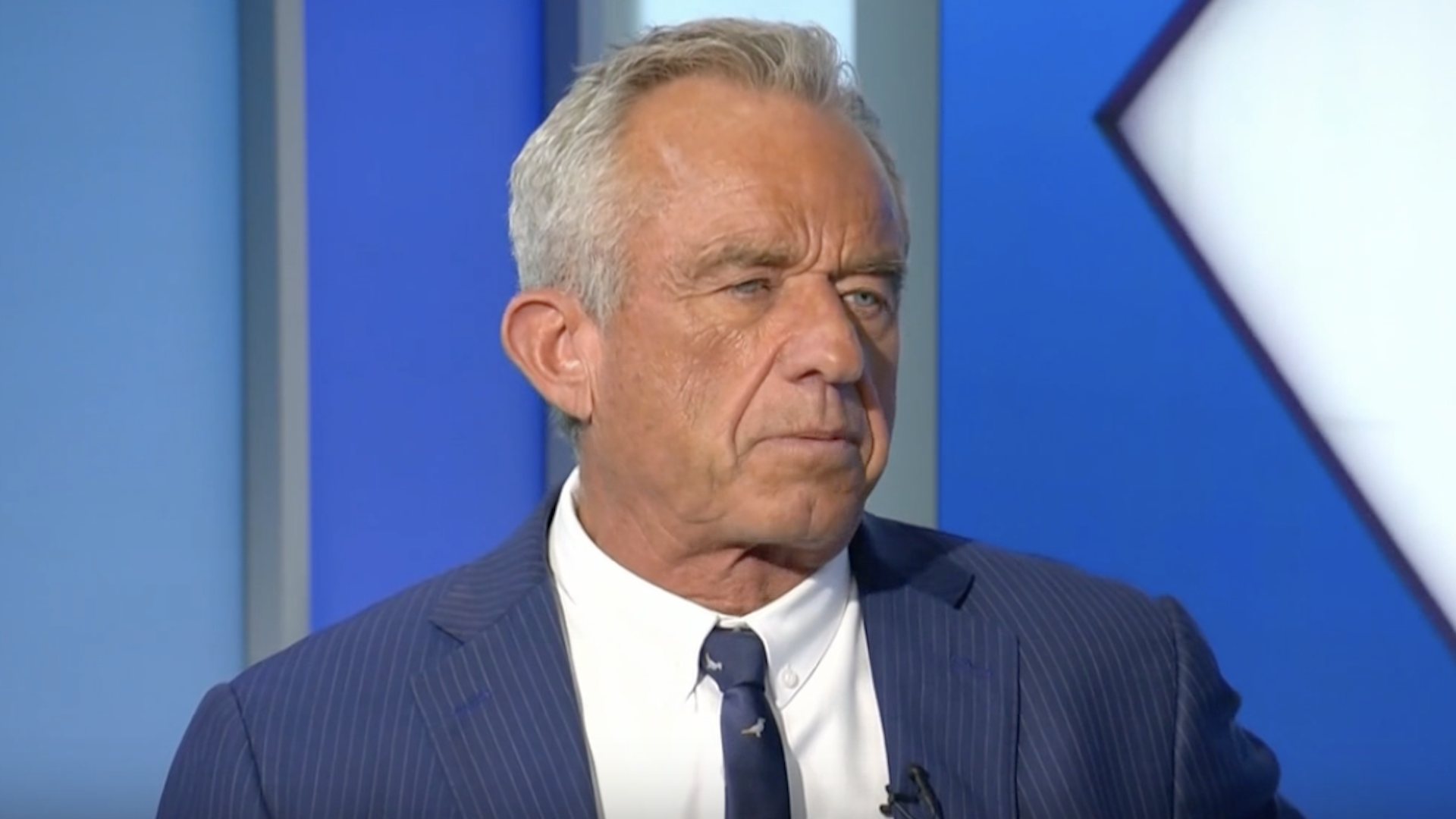Health and Human Services Secretary Robert F. Kennedy Jr. sat down with Scripps News for a wide-ranging interview, discussing mRNA vaccine funding policy changes, a recent shooting at the Centers for Disease Control and Prevention, federal research funding tied to university compliance, the role of diet in public health, and efforts to protect athletes from brain injuries.
Halting mRNA vaccine technology funding
Kennedy explained the administration’s decision to cancel millions of dollars in contracts to develop vaccines using mRNA technology. The vaccines were being developed to fight respiratory viruses like COVID-19 and the flu.
RELATED STORY | RFK Jr. pulls $500 million in funding for vaccine development
WATCH THE FULL SCRIPPS NEWS INTERVIEW WITH RFK Jr.
Kennedy questioned the effectiveness of the vaccines despite overwhelming scientific research. He also warned against virus mutations and dosage control issues.
"You can't control the amount of antigen that everybody is getting," he said. "When you give a vaccine, you want to know exactly how much antigen is because some people react very, very badly and can get very, very badly injured."
Kennedy emphasized that the technology is still being researched for cancer treatments, where it may prove effective.
Responding to criticism from medical experts, Kennedy questioned the reliability of safety data and pointed to "5,000 peer-reviewed studies" that point to vaccine-related injuries.
"Trusting the experts is not a feature of either a science or democracy," Kennedy said.
He added, "There's always questions and we're always encouraged to have them. Science is always evolving."
RELATED STORY | Former CDC director warns 'many people will suffer' from funding cuts to mRNA vaccine development
CDC shooting and vaccine skepticism
Kennedy addressed Friday's deadly shooting at the CDC in Atlanta, reportedly motivated by COVID-19 vaccine concerns. He expressed condolences to the victims’ families and support for CDC employees.
“They work in silence, saving us all and protecting our health. They should not be the targets of this kind of violence from anybody," Kennedy said.
Kennedy said his priority is ensuring employee safety and restoring public trust by telling the truth, even when he believes scientific uncertainty exists.
Combating misinformation and public trust
When asked how to prevent violence tied to health misinformation, Kennedy stressed the need for transparency and “Gold Standard" science.
“People can ask questions without being penalized," Kennedy said.
He added, "The way we make the public believe in us is by telling the truth — what we know and what we don’t know.”
Kennedy criticized past government messaging during the height of the COVID-19 pandemic for what he described as officials overstating certainty, which he believes eroded trust.
Federal research funding and university compliance
Kennedy discussed the Trump administration’s policy of withholding federal funding from universities accused of not being forceful enough to root out antisemitism or permitting transgender women in women’s sports. Critics say this could harm medical research.
“Universities that are now being defunded because they’re breaking the law should stop breaking the law, and then they will get that funding," he said.
He also said research funding should be distributed more widely to avoid centralized control that could stifle scientific dissent.
Healthy eating and processed foods
Kennedy identified sugar and ultra-processed foods as major threats to public health, citing rising rates of diabetes linked to dietary changes.
“We are giving the poorest members of our society diabetes when they’re young, and then we’re paying for it later with Medicaid.”
RELATED STORY | New SNAP rules: Candy and soda no longer covered in additional states
Kennedy added that the federal government will issue dietary guidelines based on public health rather than commercial interests.
Addressing food deserts
Kennedy acknowledged challenges in underserved areas but argued that “cheap food is an illusion” if it causes long-term health costs. He insisted that public-private partnerships can provide healthy meals at competitive prices.
"A Big Mac costs, you know, I think $9 now... You can get high-quality food as we change these rules to incentivize people to buy better food. You're going to see the markets respond, and you're going to see better food going into these food deserts."
Protecting athletes from CTE
During the interview, Kennedy criticized reports about a shooter in New York targeting NFL headquarters because he reportedly believed he had chronic traumatic encephalopathy, also known as CTE.
RELATED STORY | Shooter who killed 4 in NYC claimed he had CTE, blamed NFL
Kennedy was pressed on whether the government has a plan to protect children or even adults in contact sports.
Kennedy said his department's role is to conduct research and provide data to policymakers and organizations like the NFL.
"Our job is not to go out and tell people what they can do or what they cannot do," he said. "It's to give good information, so that groups like the NFL and private groups and public officials can then make good policies that are going to advance the health of the American people."
Editor's Note: A previous version of this article contained an error in a quote, stating "energy" instead of "antigen."





